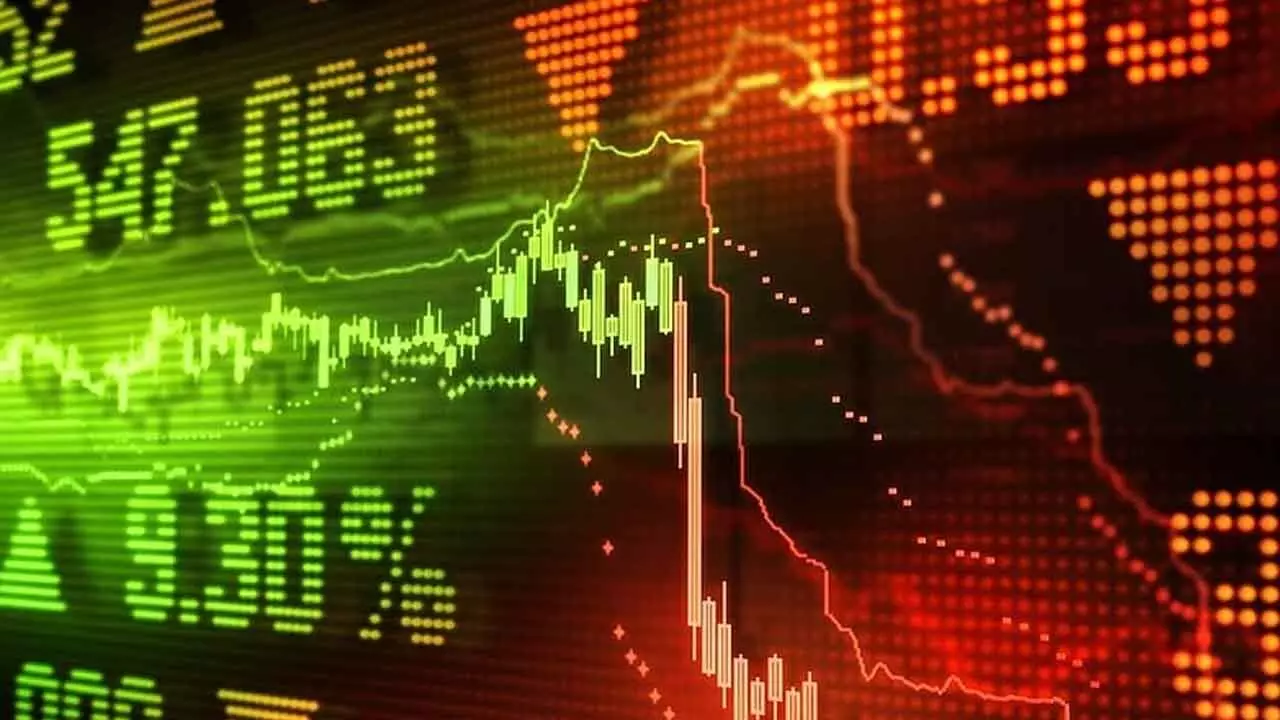Markets Reel as Middle East Tensions Escalate Following US Strikes on Iran
Indian stock markets plummet as Sensex and Nifty fall sharply after US strikes on Iranian nuclear sites. Get insights into the IT sector's losses, Rupee depreciation, and global market reactions to escalating Middle East tensions
Markets Reel as Middle East Tensions Escalate Following US Strikes on Iran

The Indian stock markets opened significantly lower on Monday, June 23rd, as investors reacted with apprehension to the latest developments in the Middle East. Both the Sensex and Nifty benchmarks experienced a sharp decline in early trade, a direct ripple effect of the United States' recent strikes on key nuclear sites in Iran. The escalating conflict has ignited concerns across global financial centers, reminding everyone of the inherent volatility tied to geopolitical events.
The 30-share BSE Sensex saw a notable dip of 487 points, settling at 81,920 in the initial hours of trading. Similarly, the broader 50-share NSE Nifty followed suit, shedding 150 points to reach 24,914.95. This immediate downturn highlights the market's sensitivity to international instability and the perceived risk of a wider regional conflict.
Leading the charge in these early losses were prominent IT sector giants like Infosys, HCL Tech, and TCS, alongside consumer goods behemoth Hindustan Unilever and financial powerhouse Bajaj Finance. The technology sector, in particular, bore the brunt of the market's unease, with shares witnessing drops of up to 2.5% in morning trade. Coforge Ltd also saw a dip of 0.47%. This vulnerability in IT stocks could be attributed to a general flight to safety amidst uncertainty, as well as potential concerns over global economic slowdowns that might impact tech spending.
In contrast, a few resilient players managed to defy the downward trend. Bharat Electronics and Bharti Airtel emerged as the lone gainers in morning trade, showcasing relative strength in a broadly pessimistic market.
This market reaction comes just a day after President Donald Trump announced surprise strikes on Iran's underground uranium enrichment facility at Fordow, as well as nuclear sites in Isfahan and Natanz. These aggressive actions have naturally triggered calls for retaliation against Israel from various factions within the region, further fueling the volatile atmosphere.
The ripple effect wasn't confined to equities alone. The Indian Rupee also felt the pressure, weakening by 20 paise to trade at 86.75 against the US dollar in early trading. This depreciation signals a shift towards safer haven currencies as global risk aversion intensifies.
Across Asian markets, a similar sentiment prevailed. South Korea's Kospi, Japan's Nikkei 225 index, and Hong Kong's Hang Seng all traded lower, underscoring the interconnectedness of global economies in times of crisis. Shanghai's SSE Composite index, however, managed to buck the trend, showing a marginal gain.
Meanwhile, while US markets had closed mostly lower on Friday, the global oil benchmark Brent crude saw a significant jump of 1.69 per cent, reaching USD 78.31 a barrel. This surge in oil prices is a classic indicator of heightened geopolitical risk, as supply concerns emerge in the event of further disruption in the Middle East.
It's a stark contrast to Friday's trading session, where Indian benchmark indices had enjoyed a brief respite, snapping a three-day losing streak with gains of over 1%. That short-lived rally was largely attributed to optimism surrounding Donald Trump's earlier decision to delay action in Israel's offensive against Iran. Today's sharp decline serves as a potent reminder that in the delicate balance of international relations, market sentiment can turn on a dime.

